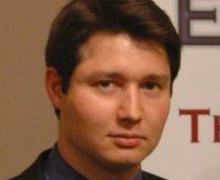Interview with Benjamin Henrion (zoobab)
Pieter Hintjens In Memoriam. For ZeroMQ and all the rest

Benjamin Henrion (zoobab) will give a talk about Pieter Hintjens In Memoriam. For ZeroMQ and all the rest at FOSDEM 2017.
Q: Could you briefly introduce Pieter Hintjens? What was he like? How was he involved in the free software community?
Pieter was a long term adopter and author of free software. He founded iMatix Corporation back in 1995, and wrote one of the first successful web servers, Xitami, which was very popular among Windows users. Xitami did not make much money for iMatix, but it was a very scalable server, capable of handling many multiple parallel requests. iMatix made some very interesting tooling around code generation (Libero and GSL) and multi threading (SMT for Simple Multi-Threading kernel), which were used to generate the code of Xitami.
After the year 2000, iMatix stopped investing in Xitami, and made multiple projects all mostly based on Linux and free software (diskless terminals, payment systems using encrypted email with GnuPG in Africa, and SMS@, an SMS to email gateway). In 2004, iMatix was threatened by a Belgian patent troll (AllIsBlue) which was claiming a European patent on the concept of matching an email with a phone number in a database. That’s where Pieter got involved at the time in the debate on the Software Patent Directive. The first time I met him was at a conference organized by the European Patent Office (EPO) and their allies here in Brussels, and he made the best speech I had ever listened to on the topic. After the rejection of the directive in July 2005, he became the next president of the Foundation for a Free Information Infrastructure (FFII), and he recruited me to work with him on those topics. In January 2006, the European Commission was announcing the reopening of the discussion on the Community Patent, which is now taking the form of the Unitary Patent.
In 2005, Pieter started to make some messaging solutions for JP Morgan Chase, which at the end became OpenAMQ, an open source messaging solution centered around a broker. In 2010, iMatix decided to drop the broker model for speed reasons, and decided to buy and open the code of ZeroMQ, a product of a Slovakian company. ZeroMQ then evolved into a large community, with bindings for many languages.
Q: What will your talk be about, exactly? Why did you decide to have this in memoriam?
I will try to go through his life, his successes and failures, and how our community can learn from it. Pieter had still the energy to publish his memos in his last book “Confessions of a Necromancer” just a week before he left us.
I think through his successes and failures, he came to the conclusion in 2010 that only free software will survive in the long run, and he decided not to make proprietary software ever again.
Pieter and I were organizing the Internet Of Things devroom for the last 3 years, and we worked together on ZeroMQ from December to April. We organized a ZeroMQ hackaton in his garage just before FOSDEM last year, and that was a lot of fun. Then we kept warming up the garage and it was our new office for a while. At the end of March, we were preparing a demo of the Zyre networking protocol with OpenWrt WiFi routers for an IoT conference in Munich. The demo went fine, but he started to choke a lot, and I told him to visit a doctor. After two weeks, he announced that his cancer was back, with metastases in both lungs. We organized a last party at his place back in June, and he left us in October.
Q: What do you hope to accomplish by giving this in memoriam? What do you expect?
I want to encourage people to buy his books, my preferred ones are “Building communities” and the last one “Confessions of a Necromancer”, that he published few weeks before leaving us.
Those books are a guidance for anyone working on software projects, what to do and what not to do.
Pieter is also leaving behind him 3 young kids (the youngest is only 5), and he wants to encourage people to make a donation (ph@imatix.com on Paypal), or to buy his books. I will have some books available at FOSDEM on the Python booth.
Q: Can you share a typical anecdote about him?
After the NoOOXML campaign in 2008, Pieter set up an award (the Kayak Award) for the best team that was fighting the OOXML standardization at ISO. At the end, we gave the award to Microsoft, they were just too good at corrupting the process. At some point, we learned from a trusted source that Pieter was on Microsoft’s blacklist. Pieter went to a conference where there was a debate with a Microsoft spokesman on the podium, and this person asked Pieter: “Is that you who gave us that award?”

Creative Commons License
This interview is licensed under a Creative Commons Attribution 2.0 Belgium License.